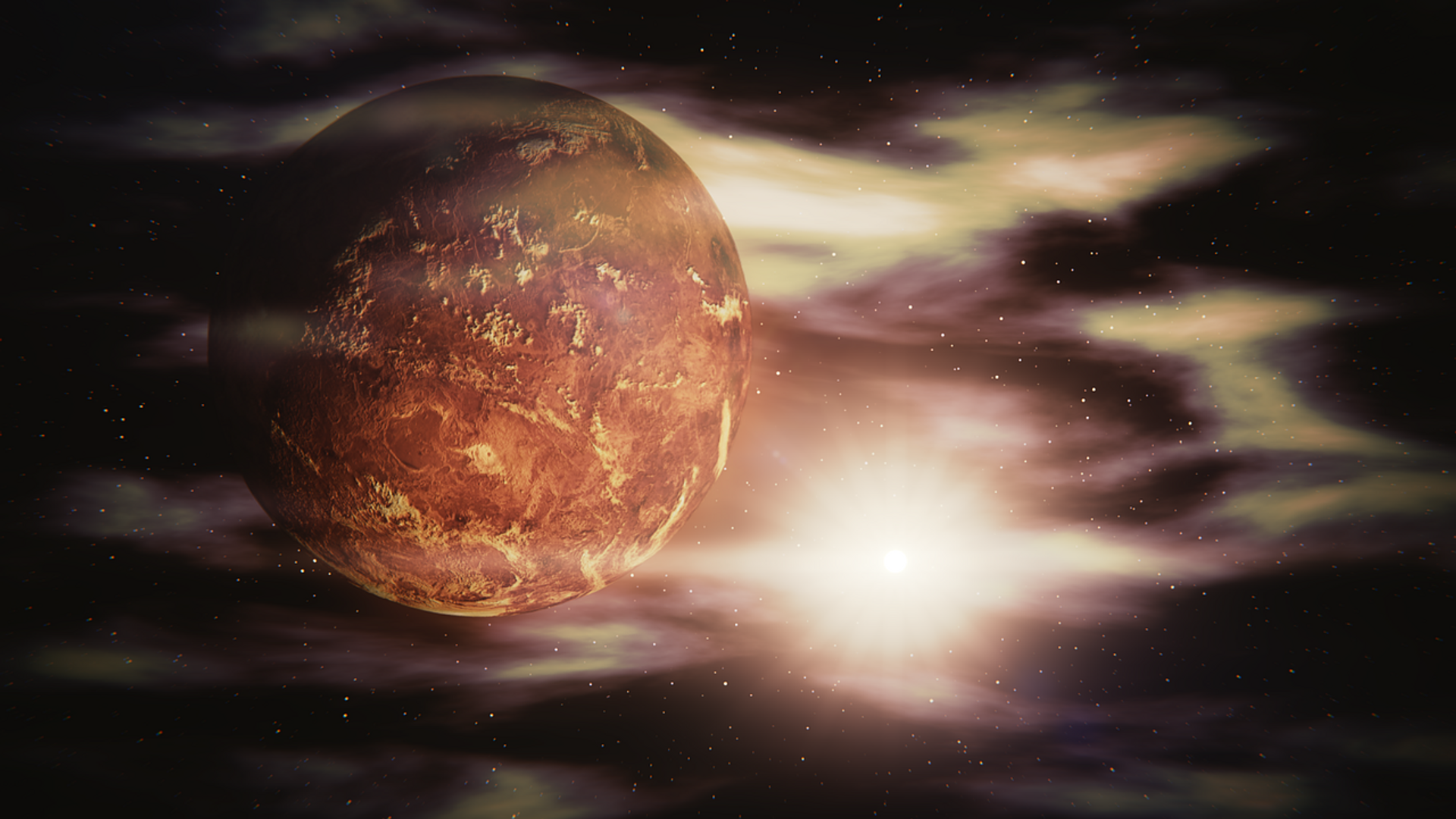https://sputnikglobe.com/20230412/launch-of-russian-first-space-mission-to-venus-postponed-till-2030s-1109383860.html
Launch of Russian First Space Mission to Venus Postponed Till 2030s
Launch of Russian First Space Mission to Venus Postponed Till 2030s
Sputnik International
The launch of Venera-D, a Russian first space mission to Venus, has been postponed and now is planned for after 2030, the Russian government said in documents presented on Wednesday.
2023-04-12T10:53+0000
2023-04-12T10:53+0000
2023-04-12T16:58+0000
science & tech
venus
russia
space
https://cdn1.img.sputnikglobe.com/img/107687/01/1076870163_0:0:1280:720_1920x0_80_0_0_e32978927bc37ea7874195b7137a734c.png
"A draft design for the Venera-D space complex is currently being developed. Launch is planned for after the year 2030," government materials prepared for the visit of Prime Minister Mikhail Mishustin to the complex’s developer, NPO Lavochkin, said. The Venera-D project is designed for a comprehensive exploration of Venus by contact and remote means, and the "D" in its name stands for "dolgozhivushaya," which means "long lasting" in Russian. The orbiter will help scientists solve the following scientific tasks: study the nature of the greenhouse effect, which heated the planet’s surface to 500 °C (932 °F); study the observed features of its atmosphere and the nature of super-rotation (the Venusian atmosphere at the upper border of the cloud layer rotates 60 times faster than at the surface). Russian scientists also want to understand how Venus interacts with the solar wind and why it has no own magnetic field and whether it had it in the past. They are also probing whether there are active volcanoes on the planet and what is the nature of volcanic activity. Scientists are also curious about issues such as habitability of the planet, where and how did the water disappear and whether there was an ocean on the surface during the first billion years of its existence and whether life was possible in that ocean. Besides, Venera-D will analyze gases in the atmosphere with its precise chemical analyzers. Additionally, the scientists plan to conduct two more missions to Venus and try to deliver soil samples from there to the earth. Preliminary dates were 2031 and 2034, however, it remains unclear whether they will remain unchanged.Earlier, it was reported that the launch of the space mission could be conducted in 2029. As of yet, the design concept has been created, and the development of the draft project will begin in late 2023 - early 2024. The space mission will become a new step in Venus exploration, which was conducted by Soviet and American stations between the 1960s to the 1990s.
russia
Sputnik International
feedback@sputniknews.com
+74956456601
MIA „Rossiya Segodnya“
2023
Sputnik International
feedback@sputniknews.com
+74956456601
MIA „Rossiya Segodnya“
News
en_EN
Sputnik International
feedback@sputniknews.com
+74956456601
MIA „Rossiya Segodnya“
Sputnik International
feedback@sputniknews.com
+74956456601
MIA „Rossiya Segodnya“
russian first space mission to venus, launch of venera-d
russian first space mission to venus, launch of venera-d
Launch of Russian First Space Mission to Venus Postponed Till 2030s
10:53 GMT 12.04.2023 (Updated: 16:58 GMT 12.04.2023) MOSCOW (Sputnik) - The launch of Venera-D, a Russian first space mission to Venus, has been postponed and now is planned for after 2030, the Russian government said in documents presented on Wednesday.
"A draft design for the Venera-D space complex is currently being developed. Launch is planned for after the year 2030," government materials prepared for the visit of Prime Minister Mikhail Mishustin to the complex’s developer, NPO Lavochkin, said.
The Venera-D project is designed for a comprehensive exploration of
Venus by contact and remote means, and the "D" in its name stands for "dolgozhivushaya," which means "long lasting" in Russian. The orbiter will help scientists solve the following scientific tasks: study the nature of the greenhouse effect, which heated the planet’s surface to 500 °C (932 °F); study the observed features of its atmosphere and the nature of super-rotation (the Venusian atmosphere at the upper border of the cloud layer rotates 60 times faster than at the surface).
Russian scientists also want to understand how Venus interacts with the solar wind and why it has no own magnetic field and whether it had it in the past. They are also probing whether there are active volcanoes on the planet and what is the nature of volcanic activity. Scientists are also curious about issues such as habitability of the planet, where and how did the water disappear and whether there was an ocean on the surface during the first billion years of its existence and whether life was possible in that ocean. Besides, Venera-D will analyze gases in the atmosphere with its precise chemical analyzers.
Additionally, the scientists plan to conduct two more missions to Venus and try to deliver soil samples from there to the earth. Preliminary dates were 2031 and 2034, however, it remains unclear whether they will remain unchanged.
Earlier, it was reported that the launch of the space mission could be conducted in 2029. As of yet, the design concept has been created, and the development of the draft project will begin in late 2023 - early 2024. The space mission will become a new step in Venus exploration, which was conducted by Soviet and American stations between the 1960s to the 1990s.

